Your bowel habits are probably not everyday dinner table conversation or something you want to bring up with your buddies, and they you may even feel embarrassed about bringing them up with your doctor, but constipation is quite a prevalent problem. In fact, studies suggest that the global prevalence of constipation is about 14%.
The good news is that eating certain foods can help relieve constipation by stimulating intestinal peristalsis and bulking up stool. Keep reading for the best foods to help you poop.
What causes constipation in men?

The causes of constipation can be multifactorial, but common causes in men include dehydration, consuming a low-fiber diet, having a sedentary lifestyle, and taking certain medications or having certain medical conditions.
Constipation can result from low motility of the GI tract. This results in slow transit time, which refers to the length of time it takes for contents of the digestive tract to travel through the intestines and colon and be expelled as stool. Constipation can make bowel movements infrequent, painful, and difficult. Stool is typically harder and more compact due to the extended time it sits in the colon, where water is reabsorbed from the stool back into the body, drying it out.
Gut motility directly affects transit time, so factors that alter gut motility, such as the central nervous system, gut secretions and enzymes, nutrient content in the food, and the health and balance of the bacteria in your gut microbiome can all contribute to constipation as well.
Is it bad if I’m constipated a lot?
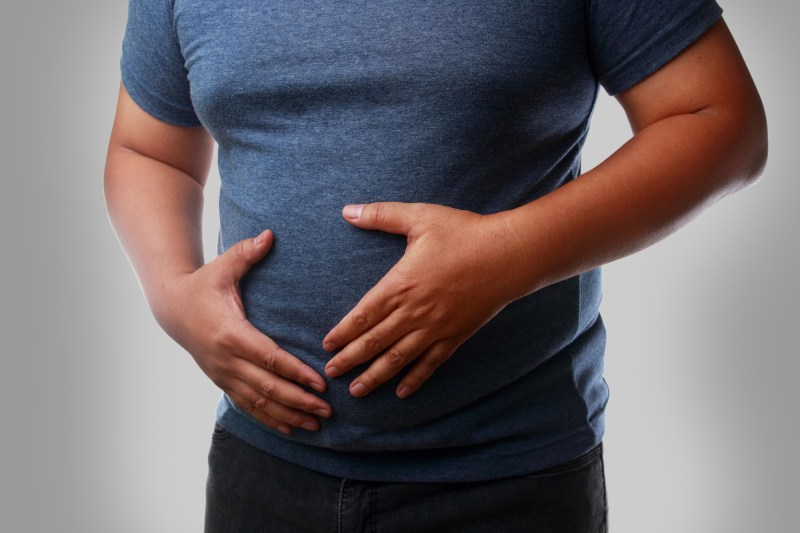
Constipation is a very common problem in our society, and many people tend to think of it as simply an inconvenience or uncomfortable reality that’s a “normal” part of aging. However, studies show that constipation is actually a potential risk factor for a variety of diseases, such as coronary heart disease and ischemic stroke. It can also increase the risk of all-cause mortality.
Therefore, if you have reason to believe you’re struggling with chronic constipation, it’s important to explore the root causes and restore optimal regularity, even if the conversation feels awkward.
The best foods to help constipation
Prunes
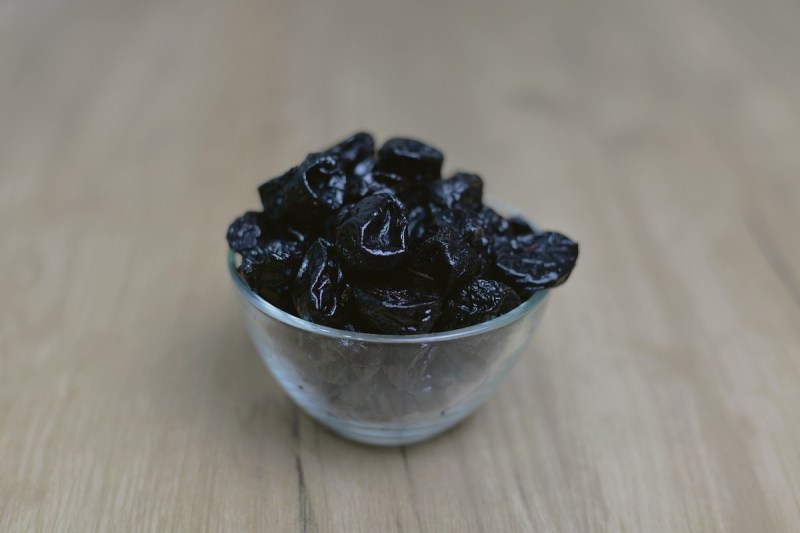
Prunes, which are dried plums, are one of the most popular natural remedies for constipation. A single 1/4-cup (40-gram) serving of prunes contains 3 grams of dietary fiber, which is roughly 12% of the Reference Daily Intake (RDI) of fiber.
Prunes are one of the best foods for constipation because the majority of the fiber in them is the insoluble fiber known as cellulose, which can bulk up the stool and give it more heft to help move it along your digestive tract. There is also soluble fiber that is fermented in the colon by the healthy gut bacteria and further bulks up the stool. Finally, and perhaps most importantly, prunes are a natural source of sorbitol, a sugar alcohol that the body cannot absorb. Sorbitol causes water to flood the colon, leading to a natural laxative effect.
Figs are another great dried fruit to eat if you are constipated. They are also quite high in fiber, and some studies suggest that they can be effective at reducing constipation symptoms and severity.
Green vegetables
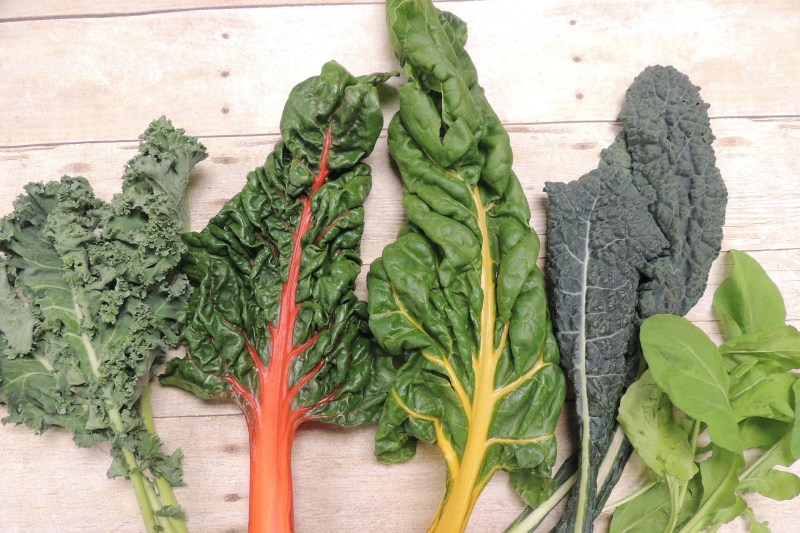
Green vegetables (think leafy greens like spinach, kale, bok choy, and collard greens, and vegetables like broccoli and Brussels sprouts), are among the best foods to eat for constipation. Not only are these veggies packed with antioxidants, vitamins, and minerals, but they also are high in water and fiber, meaning they’ll bulk up your stool and decrease stool transit time. Cooked spinach contains nearly 5 grams of fiber per cup (180 grams), which is about 20% of the recommended daily intake.
Apples
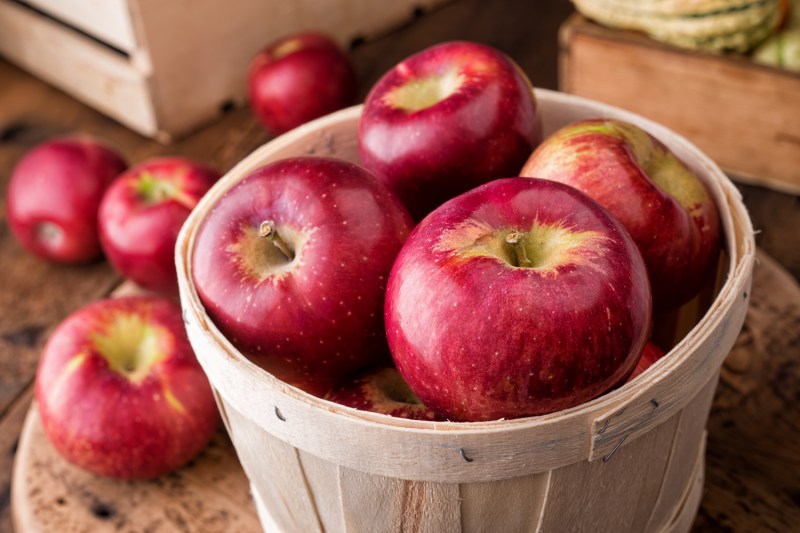
The saying “an apple a day keeps the doctor away” could potentially be turned into “an apple a day yields a bowel movement a day.” One medium-sized apple contains nearly 5 grams of fiber, or about 19% of the recommended daily intake. Much of the fiber in apples is the insoluble fiber known as pectin, which is a prebiotic fiber that feeds the bacteria in the gut, softens the stool, and shortens stool transit time.
Pears
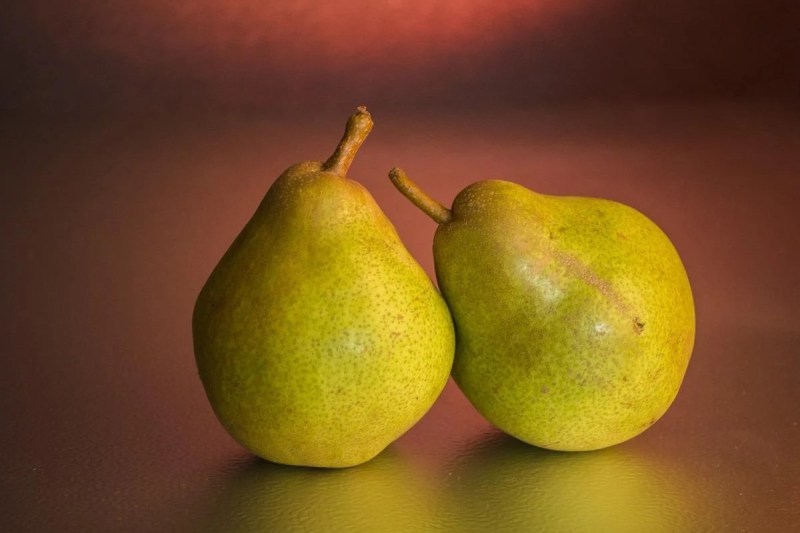
Pears are even better than apples in terms of their fiber content, with nearly 6 grams of fiber in a medium-sized pear. These fruits are especially high in fructose and sorbitol, a sugar and sugar alcohol, respectively. These substances tend to be poorly absorbed by the gut. As a result, eating pears or other foods high in sorbitol or fructose pulls water into the intestines, which stimulates the bowels and has a laxative effect.
Rhubarb
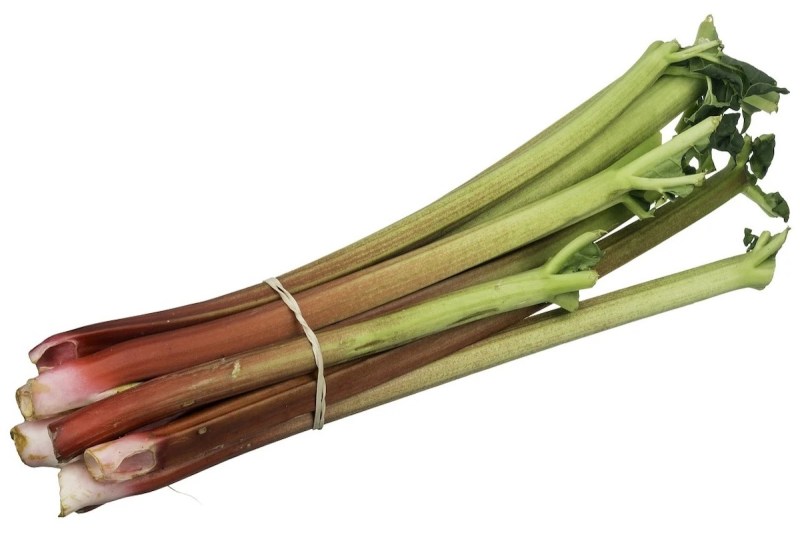
Rhubarb is a natural constipation remedy due to its high sennoside A content. Sennoside A is more frequently known as senna and is a popular herbal laxative. Just make sure that you don’t eat the leaves of the rhubarb plant, as they are poisonous. The stem should be boiled before eating it, though be prepared for its very tart taste.
Legumes
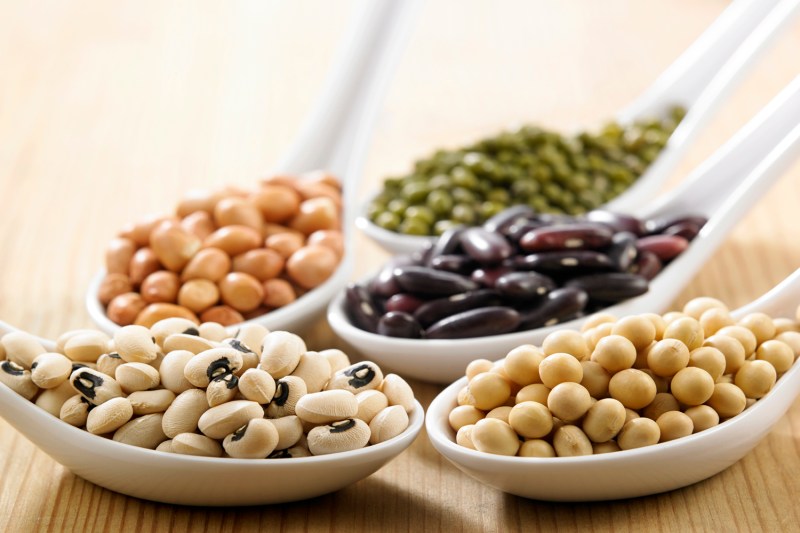
Legumes are excellent for relieving constipation because they’re packed with both soluble and insoluble fiber. Beans, peas, lentils, and chickpeas are all examples of nutritious, fiber-packed legumes to add to your diet to get your bowels moving. Fiber bulks up stool and makes it easier to pass, enabling less straining and more frequent bowel movements.
There is nearly one-third of the recommended daily intake of fiber in 1/2 cup (99 grams) of cooked lentils, and 19 grams of fiber in one cup (182 grams) of cooked navy beans, which is about 75% of the RDI.
Kiwifruit
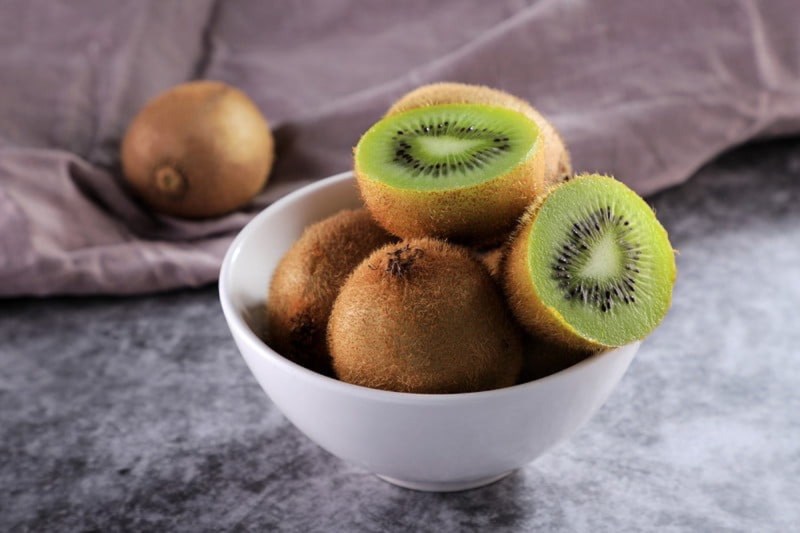
Kiwi is another great food to eat to relieve constipation. Unlike many of the other top foods for constipation relief, kiwi isn’t particularly high in fiber. However, it contains an enzyme called actinidin, which is thought to stimulate gut motility and increase the frequency of bowel movements. Studies have shown that people who eat kiwis more often have more frequent bowel movements.
Jerusalem artichokes and chicory root
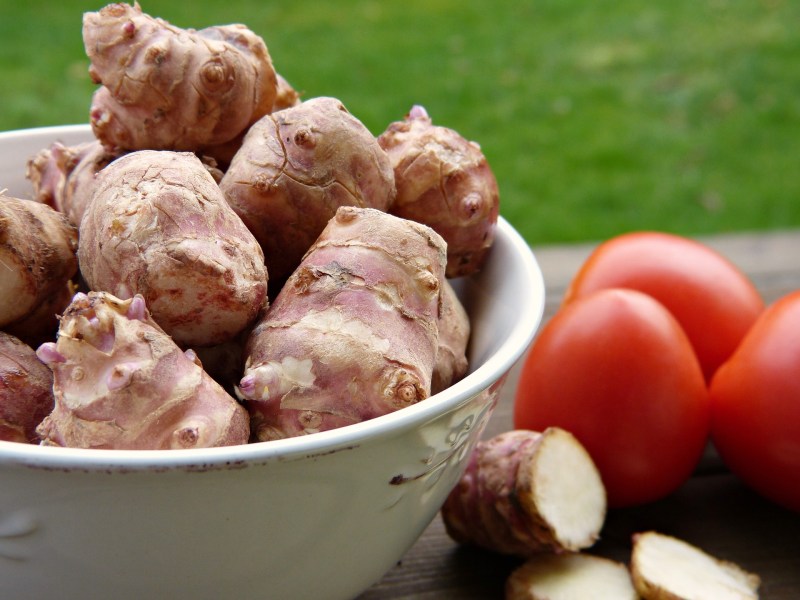
Jerusalem artichokes, also called sunchokes, and chicory are two of the best foods to alleviate constipation. These tubers are particularly high in a type of soluble fiber known as inulin. Inulin not only improves digestive health and feeds the beneficial bacteria in your gut to help prevent constipation, but it can also promote gut motility and stimulate bowel movements to relieve constipation.
Baking soda lemon water
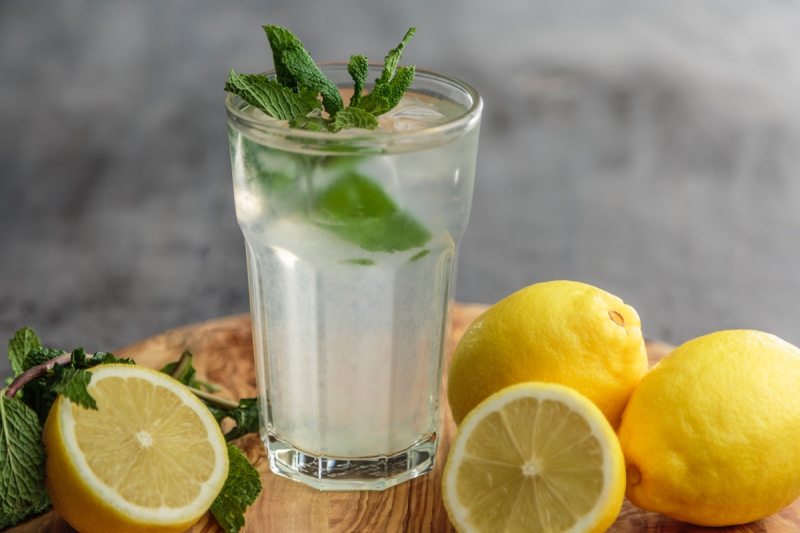
Although not a food to relieve constipation per se, many people swear by a tall glass of hot water with fresh lemon juice first thing in the morning to jumpstart the digestive system. Adding a teaspoon of baking soda further boosts the bowel-stimulating potency of this morning tonic. Baking soda pulls fluid into the digestive tract and increases peristalsis, lubricating and engorging stool and pushing it along towards the colon. Moreover, since chronic dehydration is one of the primary causes of constipation and extended stool transit times, it should come as no surprise that increasing your daily intake of water can support bowel regularity.
Editors’ Recommendations

